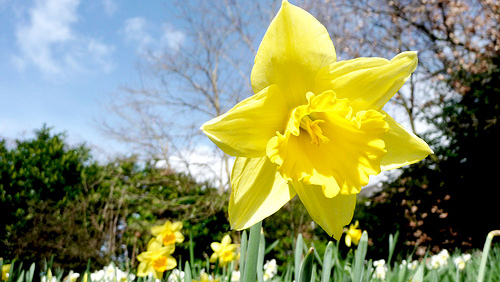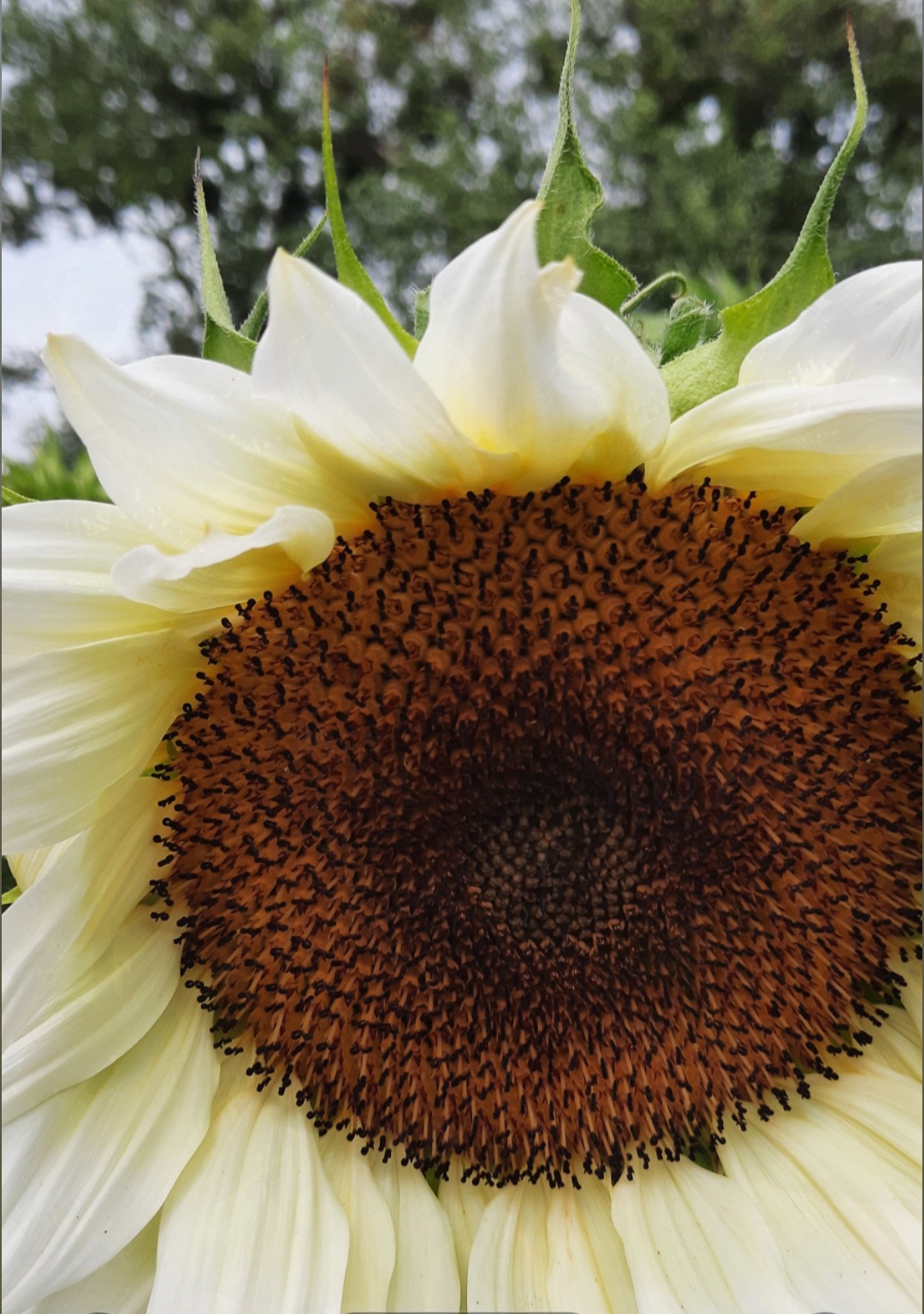Celebrate the advent of spring with new poems by seven of our spectacular contributors.

Are You the Right Girl?
Two cactus branches pointed at different suns
who’s right who’s wrong?
myself evaporating: minute turns into other minutes –
the minutes of later minutes later
pooling into an hour, a puddle
two things to do on this day
one is to send a strategic text message intended for a desired effect to a male
one is to sit on the self to look inward while using my own hands to write
life is not just reading, drinking green juice, and wearing sweaters anymore
let the writing smell nice
let it bring you to a party
where someone will say
I want to have sex with you
what laughs afterwards, is the self swished
there is a desired effect a volume claimed by experience and wine
of swishing the self into a clown
and clown into a living disaster sculpture with great skin
and, wait-for-it, heaving
with lips abloom with oxygenated blood
arms akimbo
standing in the sewer
come here, you man over there, it’s so lonely in the sewer
when the moon is no longer the moon
we call it the moony moony moon
there’s honey on this moon
if you’d just fucking come down here
and hang out in the sewer with me
it’s not just what the self thinks, it’s the truth
and a collage of experience, time, and fucking a really smart reading list
what does focusing on one item of punctuation do
when the car is traveling 75 miles per hour
on a highway without a road beneath tires: only air beneath the tires?
a metaphor but also a reality
a duality of one prickly cactus reaching its treeself in two different directions
perhaps just the morning of the sun and the evening of the sun
or perhaps we want to be “cool girl”
who is just mad chill and says “whatever” a lot
and has middling standards
oh women, help me, women
I can see the flexible legs of the ingénue spread open
Her cunt tattooed with the words see me now right now
but someday
she’ll be laying there (because she never moves from that uncomfortable crab like position)
and she’ll come to know that
all he’s done is slap the paint on the brush
while she does all the painting
Amy Lawless is the author of two books of poems, most recently My Dead.
Portrait of Hermes as a B-Boy
for Brian Johnson
To the tune of Can’s “Vitamin C”,
I engage Soul Elemental
in an intense charades game
of knife-cutting gestures;
in the middle of the dance floor,
we Brooklyn Uprock,
in unison, facing opposite:
our shuffling feet & stabbing
motions approach each other
but never make contact.
He points at my half-sister,
Aphrodite—the cascading stairs
leading to the bathroom—&—
pressing his tongue against the inside
of his cheek—pantomimes a blowjob:
an unexpected B-Boy burn
expressing what went down
while I waited ages in a zigzag
mess to lay hands on the club’s
finest bottle of coolie high harmony.
The news of Soul Elemental getting brain
while Aphrodite’s entourage
of sparrows kept its eye
on the door carves a diagonal cut
from the cheekbone to the corner
of my mouth. Adding margarita salt
& lime juice to the wound,
Soul Elemental clips the wings
of my designer shell-toe Adidas,
but I, the O.G. psychopomp,
promptly provide him
safe passage through Hades.
Jonathan Moody received his MFA from the University of Pittsburgh. He’s a Cave Canem alum whose poetry has appeared in African American Review, Crab Orchard Review, Gathering Ground, and among numerous other publications.
Erosion
Space expands with passing time; erosion
shifts proximities. A house perched on a cliff
is static, but water percolates inside
the rock, sediment runs off, the gradient
steepens. The risk of falling deepens as storms
strip land, exposing roots and skeletons
of whale. Miles out, the ships that sever water
from sky know nothing of lost ground. Inside
a man considers walling off the rooms
that flank the looming edge, a sacrifice
like amputation, but instead he transplants
the house, losing only the foundation.
He uses steel beams and hydraulic jacks
to shift the structure back. The earth, of course,
keeps spinning, space keeps filling in the gaps.
A million things can chip away at us,
breaking down that which we strive to keep intact:
mass wasting, surface creep, earthquakes, pounding waves.
There is no cure for time or stormy weather.
Even now, spring gales beat down the cliff’s face.
Even now the man calculates his losses,
this trick of geometry, the distance left,
as if the right angle truly buys more time,
and solid ground itself could be enough.
Elizabeth Hazen is a poet and essayist whose work has appeared in Best American Poetry 2013, Southwest Review, The Threepenny Review, The Normal School, and other journals. She teaches English at Calvert School in Baltimore, Maryland.
The End of Play
Sunlight refracted on the playing field, khakis
pinned with poppies, red eyes, noon bells snorted
the end of our play and we entered homerooms,
uniforms badged with stains, a dunce scent swimming
in our heads, milk breath purred curses picked
up from cane cutters, the crocus spirit-talk of women
broken by the crack they work everyday in the earth
but Sunday – Sundays the Quaker Chapel bell
quiescent with God’s love and wrath, the pews’ silence
like graves eroding around the stone church –
vultures asleep in the belfry, heads drawn back from the heat
and sorrow of that immaculate hilltop called Happy Grove.
Below the turning sea grips the cliffs hanging white
in the breeze, solid as our faith in the holy lie
inscribed on marble by the school’s Scottish founders:
ad agendum semper parati:
always be prepared for action, for work, the syllabus
of coconut trees a blessed fungus blanched to tumor.
Beheaded kings and rebel slaves we stared at from the perch
of our desks, half drowsing to teacher’s voice;
then her tuneless ruler rose and guillotined the air,
raising us to evening prayers, then we raced downhill,
heaping into the rusty bus that rounded the seaside road
for home. So, without adults or geometry, with quailed
poppies passing the fork-castrated sea, flashing cane
fields, the corrugated fences that condemned neighbours
to their poverty, that mashed-mouth mongrel mystified
in a pothole by the Junction Crossing, we arrived,
staggering to a stop outside The Red Sea Bar, drunks
with sermons and cataracts of insights, lying
in the raw nerves of a cesstank, drinking under the sign:
Licensed to Lascelles, the new Water Commission
lackey whose white and blue jeep patrolled about
but never fixed nothing, coming crisp and smiling
election time to old women’s verandas, beer-bribed
soot-eyed men, patted our heads, blowing smoke,
Lascelles, three-pieced, his mummified heart,
a snake hissing on his tongue anytime he said:
‘X, mark your hex on my ballot!’ Yet we admired
his brass and beautiful buttons, the two locked-jaw seams
ironed into his trousers, his laugh’s devastating boom,
fragrant hands, so soft, softer than our mothers’ and everything
else in our backbone-mashed world when we wormed
weekends in Mother Flor’s gully on a plastic cover, squirming
on our sides, sweating, whining, until an adult’s voice swung
over the john-crow green roof, quivering our humid kingdom.
Summoned, we ascended from the bush, bewildered
by cousins’ splayed bodies and felt instantly a sin:
from the stolen tarpaulin, to the gut clearing of the gully,
the holes widening in our shorts – though nothing entered,
nothing spilled on our frayed family illusion, repeated
in numb rows, our careful whispers whispered, trailing
red ants down our blouses, to reappear, winged,
from our exhalation, seething the air.
Ishion Hutchinson was born in Port Antonio, Jamaica. His first collection, Far District, won the PEN/Joyce Osterweil Award. He is an assistant professor of English at Cornell University.
Soon to Be Titled
One minute ennui the next we’re French
bipolars stuck on a reverse psychology
musical under a semi-blue sky nip over
tuck as they say swallow don’t swish
hard to fool anybody these days too
many arias floating about pop war and
paper butterflies attempting a V-formation
we all know what happens afterwards
whether the sex change operation operetta
is botched or not the singing gas attendant
limps back home from the frontline and
finds all the colorful umbrellas are gone
at least his dying godmother can finally
sing her long-awaited last words to sleep.
R. Zamora Linmark is the author of three poetry collections, Prime Time Apparitions, The Evolution of a Sigh, and Drive-By Vigils, all from Hanging Loose Press.
Nothing
There is nothing
between us now,
nothing.
No guilt about too soon,
no shame before
the wedding day,
no hope for babies,
no fear of losing new life,
no grief after it’s lost,
no infertile anxiety,
no baby taking up
space between our bodies,
no infant crying,
baby monitor muted,
bedroom door locked,
no sheets, no clothes, no air.
Sarah M. Wells is the author of Pruning Burning Bushes and a chapbook, Acquiesce. Sarah’s poetry has been honored with two Pushcart Prize nominations.
Year Zero
plus thirty
$3 gets you in
to where the calendar stopped
just outside Phnom Penh.
Eyes drop;
the guide’s been pointing to
these little bits of people
littered along the path:
odd shreds of red or blue
poking up through earth.
Here’s a bandage of a skirt;
there, the sleeve or pocket
ripped from a shirt.
It’s all rag and bone,
but somehow still hard to believe
in the down-to-earth persistence
of these tatters in the weeds.
Could be arrows, fossils, artefacts
from way before the year dot:
tiny white needles seem to have stitched
this muddy seam back together.
Ghosts flower from each ditch.
The past seeps up underfoot.
This ground’s both sewn and sown:
these rags seem planted to take deliberate root
in the mind’s soil.
Either way, what leads us up
this garden path is rhetoric.
We walk over footnotes
to that huge cairn of skulls:
find more bones talked
into this intricate and tall
seventeen-storey memento mori
of a dry-stone wall.
What holds up the white-washed stupa
is a steel and glass cabinet:
a transparent sepulchre
of skull-filled drawers clicked
each into its place.
Vertebrae.
Hard not to think of knuckles,
of how alike all bones are.
Hard to believe,
where guards laboured
hugely by these pits,
in what seems like nature’s rhetoric.
In the hollowed field,
no pathetic fallacy:
hesitant but massing,
flitting, flickering hinged light,
littering reds, yellows, whites,
along erratic flightpaths.
Hard to believe even here,
where the past is privatised,
that butterflies are just butterflies:
no other meanings being born
from all those years of grass,
these rows of zeroes at the bone.
Cliff Forshaw lives in Hull, England, where he teaches at the university. His most recent collection Vandemonian (Arc, 2013) pieces together a fragmentary history of Tasmania.



